Blogs & News
We are focus on automotive wiring harness & connectors technology.
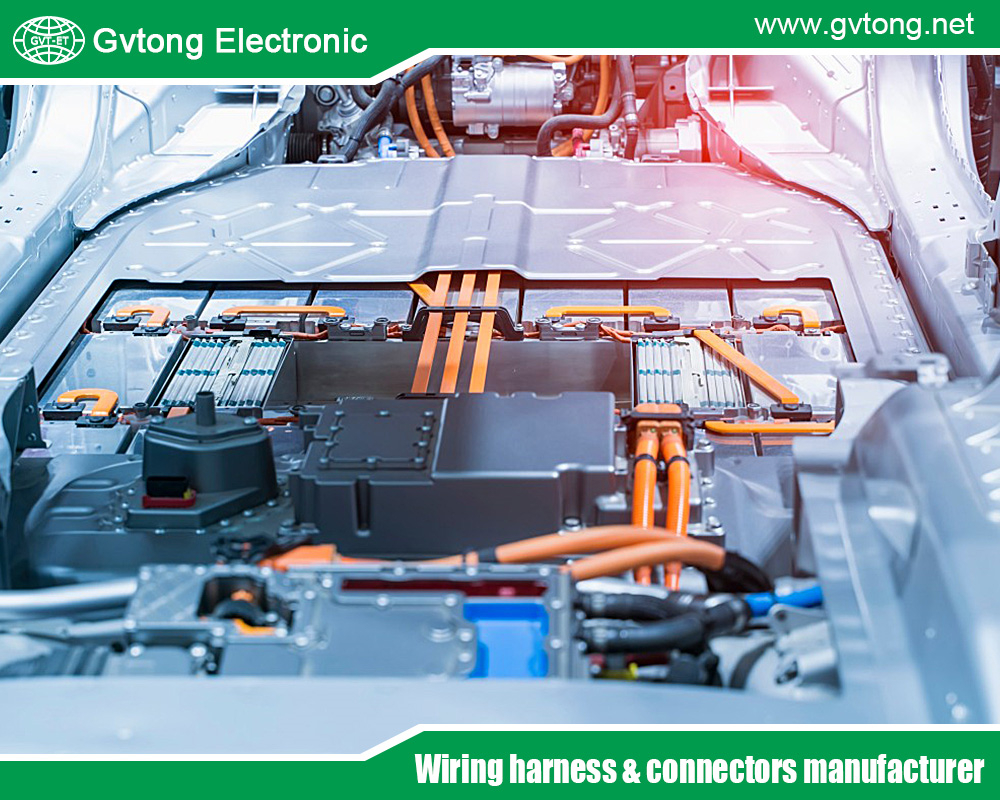
Automotive Temperature-Resistant Connector: Powering Reliability in Extreme Conditions
- Gvtong Electronic
- 48V board net connectors, Anti-vibration automotive connectors, Automated assembly connectors, automotive diagnostic connector, automotive hybrid connector, automotive oil-resistant connector manufacturer, automotive oil-resistant connector manufacturers in china, automotive Oil-resistant Connectors, automotive Oil-resistant Connectors company, automotive Oil-resistant Connectors factory, automotive Oil-resistant Connectors manufacturer, automotive oil-resistant connectors market, automotive Oil-resistant Connectors supplier, automotive Oil-resistant Connectorsautomotive High voltage connector, Automotive shielded connectors, Automotive temperature - resistant connector, Automotive vibration - resistant connector, automotive waterproof connectors, Automotive-grade AEC-Q200 connectors, Best oil resistant connector, Best oil resistant connector for cables, Best oil resistant connector for car, Best oil resistant connector manufacturer, Blind-mate automotive connectors, china oil resistant connectors, Cost-effective automotive connectors, Halogen-free automotive connectors, High-speed data connectors, High-temperature resistant connectors, Low-contact resistance connectors, Multi-variation connectors, Oil resistant connector automotive, Oil resistant connector china, Oil-resistant automotive connectors, Recyclable material connectors, Redundant safety connectors, temperature - resistant connector, Thermal management connectors, Wireless charging connectors
- No Comments
Automotive Temperature-Resistant Connector: Powering Reliability in Extreme Conditions
In the demanding world of automotive engineering, temperature-resistant connectors are critical components that ensure reliable electrical performance under extreme thermal conditions. From the scorching heat of engine compartments to the frigid cold of winter climates, these connectors maintain power and signal integrity for systems like engine control units (ECUs), electric vehicle (EV) powertrains, and advanced driver-assistance systems (ADAS). As vehicles become more electrified, connected, and autonomous, the need for connectors that can withstand wide temperature ranges—often from -40°C to +150°C or higher—has grown significantly. These connectors are engineered to resist thermal stress, vibrations, and environmental factors while ensuring safety and efficiency. This article explores the design, types, applications, and challenges of automotive temperature-resistant connectors, delving into their technical specifications, industry standards, and emerging trends. By understanding their role, we can appreciate their importance in enabling robust, safe, and sustainable automotive systems in an increasingly complex industry.
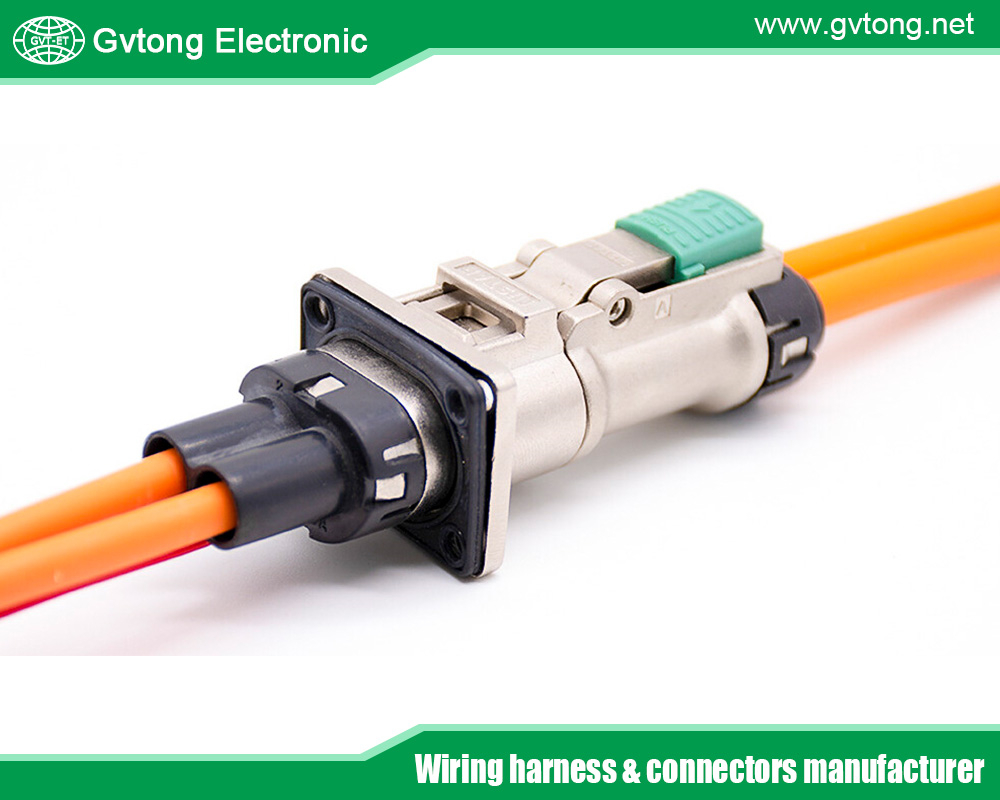
What is an Automotive Temperature-Resistant Connector?
An automotive temperature-resistant connector is a specialized electrical component designed to maintain reliable power and signal transmission in extreme temperature environments. These connectors are used in vehicles to link critical systems, such as powertrains, sensors, and infotainment, ensuring performance under conditions ranging from -40°C in cold climates to +150°C or higher in engine compartments or EV battery systems.
These connectors typically feature high-temperature-resistant materials, such as specialized thermoplastics, silicone seals, and corrosion-resistant metal contacts (e.g., gold or nickel-plated copper). They are designed to prevent thermal degradation, maintain electrical conductivity, and resist mechanical stress from vibrations or thermal expansion. Coaxial, multi-pin, or high-voltage designs are common, depending on the application. Temperature-resistant connectors must comply with automotive standards like ISO 16750 (environmental conditions) and SAE J2030 to ensure durability and interoperability. As vehicles integrate more high-power and high-frequency systems, these connectors are evolving to support higher currents, voltages, and data rates while withstanding the thermal challenges of modern automotive environments.
Types of Automotive Temperature-Resistant Connectors
Automotive temperature-resistant connectors come in various forms, each tailored to specific applications and thermal requirements. Below are the primary types used in vehicles:
- Multi-Pin Connectors:
Multi-pin connectors are used for low-to-medium power and signal applications, such as ECUs, sensors, and lighting. They feature multiple terminals in a single housing, often made of high-temperature thermoplastics like polyamide or PBT, and can operate in temperatures up to +125°C. Examples include TE Connectivity’s MCON and Molex Mini-Fit series. - High-Voltage Connectors:
High-voltage (HV) connectors are critical in EVs and hybrids, delivering power (up to 800V) to components like traction motors and battery packs. These connectors use materials like liquid crystal polymer (LCP) and copper alloys to withstand temperatures up to +150°C. Safety features like high-voltage interlocks (HVIL) are included. Standards like IEC 62196 govern their design. - Coaxial Connectors:
Coaxial connectors, such as Fakra and Mini-Fakra, are used for high-frequency signals in systems like GPS, 5G, and radar. They incorporate temperature-resistant dielectrics and shielding to maintain signal integrity in extreme conditions, often up to +105°C. - Sealed Connectors:
Sealed connectors are designed for harsh environments, offering ingress protection (e.g., IP67 or IP69K) against moisture and dust while withstanding high temperatures. Silicone seals and robust housings ensure reliability in under-hood or external applications. - Busbar Connectors:
Busbar connectors are used in high-current applications, such as EV battery-to-inverter connections. Made of conductive materials like copper with high-temperature coatings, they minimize resistance and heat generation, operating reliably up to +150°C.
Each type is selected based on factors like temperature range, current/voltage requirements, and environmental exposure. The choice also depends on the vehicle’s electrical architecture, with EVs requiring connectors that handle higher thermal and electrical loads compared to internal combustion engine (ICE) vehicles.
Design Considerations for Automotive Temperature-Resistant Connectors
Designing temperature-resistant connectors for automotive applications involves balancing performance, durability, and cost under extreme conditions:
- Thermal Stability:
Connectors must maintain structural and electrical integrity across a wide temperature range (-40°C to +150°C or higher). High-temperature materials like LCP, PBT, or ceramic-based composites are used for housings, while contacts are made from alloys with stable conductivity, such as gold-plated copper. - Environmental Durability:
Beyond temperature, connectors face vibrations, moisture, and chemical exposure (e.g., road salts). Sealing systems like silicone gaskets ensure IP67 or higher ratings, while vibration-resistant locking mechanisms prevent disconnection. - Electrical Performance:
Connectors must minimize resistance and signal loss, especially in high-current or high-frequency applications. Low-contact-resistance materials and precise terminal designs ensure efficient power and signal transmission, even at elevated temperatures. - Compactness and Weight:
With the increasing number of electrical components in vehicles, connectors must be compact and lightweight to save space and improve fuel efficiency or EV range. Miniaturized designs maintain performance while reducing material use. - Electromagnetic Compatibility (EMC):
High-frequency and high-power systems generate electromagnetic interference (EMI). Shielded coaxial or multi-pin connectors with proper grounding prevent interference with sensitive systems like ADAS or communication modules. - Compliance with Standards:
Connectors must meet standards like ISO 16750 (environmental testing), SAE J2030 (electrical connectors), and UL 94 (flammability) to ensure safety and compatibility across vehicle platforms.
Manufacturers also focus on thermal cycling resistance to prevent material fatigue from repeated heating and cooling. Advanced simulation tools optimize designs for thermal and electrical performance, ensuring reliability in demanding applications.
Applications of Automotive Temperature-Resistant Connectors
Temperature-resistant connectors are essential for a wide range of automotive systems, ensuring reliable operation in extreme conditions:
- Engine and Powertrain Systems:
In ICE and hybrid vehicles, connectors in engine compartments power ECUs, fuel injectors, and sensors, operating in temperatures up to +150°C. Sealed multi-pin connectors are commonly used. - Electric Vehicle (EV) Powertrains:
EVs rely on high-voltage connectors to deliver power from battery packs to inverters and motors, often in high-temperature environments near batteries or motors. Busbar and HV connectors ensure safety and efficiency. - Battery Management Systems (BMS):
Connectors in BMS monitor and control battery performance, requiring thermal stability to handle heat generated during charging or discharging. High-voltage and sealed connectors are critical here. - Advanced Driver-Assistance Systems (ADAS):
ADAS components like radar, LiDAR, and cameras require temperature-resistant connectors to transmit high-frequency signals in external or under-hood environments, ensuring reliable operation up to +105°C. - Infotainment and Connectivity:
Coaxial connectors like Fakra support infotainment systems (e.g., satellite radio, 5G) and telematics, maintaining signal integrity in high-temperature cabins or external antennas. - Charging Systems:
EV charging connectors (e.g., CCS or CHAdeMO) must withstand heat generated during fast charging, using temperature-resistant materials to ensure safety and durability.
As vehicles integrate more electrified and connected systems, temperature-resistant connectors are critical for maintaining performance in thermally challenging environments.
Challenges in Automotive Temperature-Resistant Connector Design
Designing temperature-resistant connectors presents several challenges:
- Extreme Temperature Ranges:
Connectors must perform reliably from -40°C to +150°C or higher, requiring materials that resist thermal degradation, cracking, or melting. Developing cost-effective, high-performance materials is a key challenge. - Thermal Cycling:
Repeated heating and cooling cycles can cause material fatigue or dimensional changes, leading to connection failures. Ensuring long-term reliability under thermal cycling is complex. - Miniaturization vs. Performance:
Compact connectors are needed for space-constrained vehicle designs, but miniaturization can compromise thermal dissipation and electrical performance, especially in high-current applications. - Environmental Protection:
Achieving high ingress protection (e.g., IP67) while maintaining temperature resistance increases design complexity and cost, particularly for under-hood or external connectors. - Electromagnetic Interference (EMI):
High-frequency systems in modern vehicles generate EMI, requiring shielded connectors that maintain performance at high temperatures without adding bulk. - Cost Constraints:
The automotive industry demands affordable solutions for high-volume production. Balancing temperature resistance, durability, and cost requires innovative manufacturing and material choices.
Addressing these challenges requires collaboration between connector manufacturers, automakers, and standards organizations to develop solutions that meet the industry’s evolving needs.
Future Trends in Automotive Temperature-Resistant Connectors
The future of automotive temperature-resistant connectors is shaped by advancements in electrification, autonomy, and sustainability. Key trends include:
- High-Voltage Systems for EVs:
As EVs adopt 800V architectures for faster charging, connectors must handle higher currents and temperatures, requiring advanced materials like ceramic composites and enhanced cooling designs. - Smart Connectors:
Connectors with integrated sensors for temperature and current monitoring will enhance reliability and enable predictive maintenance, particularly in EVs and autonomous vehicles. - Lightweight Materials:
To improve EV range and efficiency, manufacturers are exploring lightweight, temperature-resistant materials like aluminum alloys and advanced polymers, reducing weight without sacrificing durability. - Sustainable Manufacturing:
The push for eco-friendly vehicles is driving the use of recyclable and bio-based materials in connector production, alongside lead-free and low-impact processes. - High-Frequency Support:
As 5G and 6G connectivity become standard, connectors must support high-frequency signals in high-temperature environments, requiring improved shielding and thermal stability. - Modular Designs:
Modular connectors that support scalable power and signal distribution will simplify upgrades and maintenance in complex vehicle architectures.
These trends highlight the need for continuous innovation to meet the thermal and performance demands of next-generation vehicles.
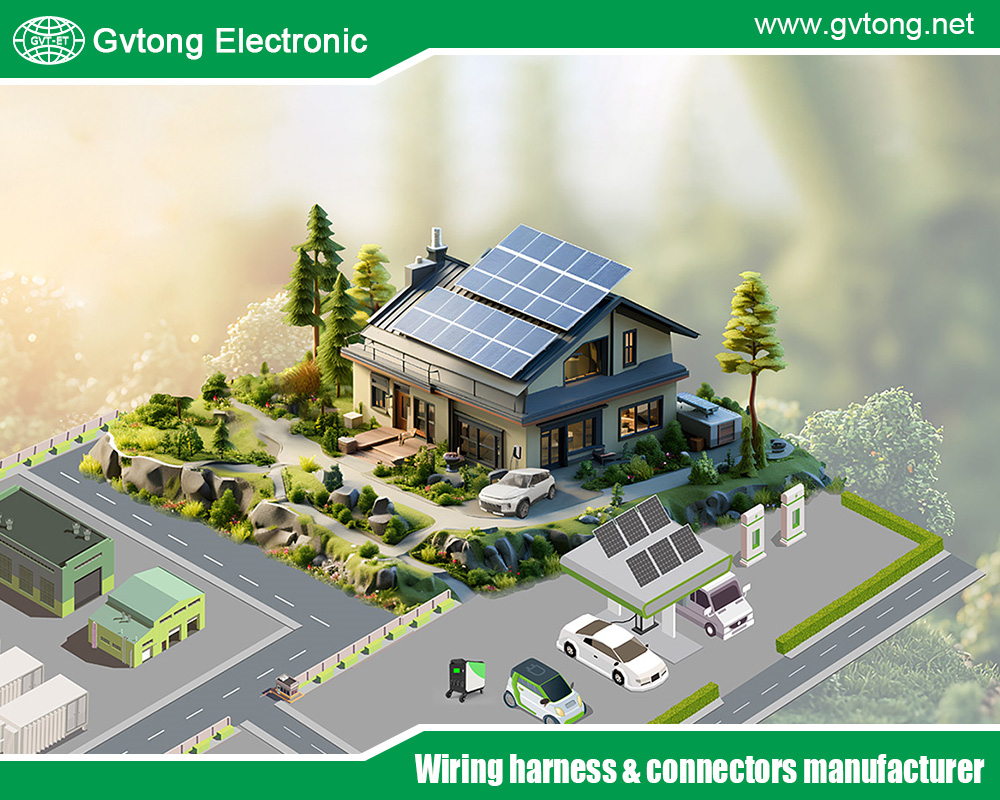
Conclusion
Automotive temperature-resistant connectors are vital for ensuring reliable power and signal transmission in the extreme conditions of modern vehicles. From multi-pin and high-voltage connectors to coaxial and busbar designs, these components are engineered to withstand temperatures from -40°C to +150°C while supporting critical systems like EV powertrains, ADAS, and connectivity. Despite challenges like thermal cycling, EMI, and cost constraints, advancements in materials, shielding, and manufacturing are driving their evolution. As the automotive industry embraces electrification, autonomy, and sustainability, temperature-resistant connectors will play a pivotal role in enabling safe, efficient, and connected vehicles. Emerging trends like smart connectors, lightweight materials, and eco-friendly designs promise to enhance performance and reliability. By addressing current challenges and anticipating future needs, manufacturers can ensure that temperature-resistant connectors remain at the forefront of automotive innovation, powering the robust and sustainable vehicles of tomorrow.
For more about the best automotive temperature-resistant connector: powering reliability in extreme conditions, you can pay a visit to Gvtong at https://www.gvtong.net/ for more info.
Recent Posts
How to Diagnose and Repair Automotive Signal Connector Failures
How to Install and Maintain Low Pressure Automotive Connectors
Heat Shrink vs. Crimp: Choosing the Right 12V Car Wire Connector
Best 12V Automotive Wire Connectors for Reliable Electrical Connections
Tags
Recommended Products
-
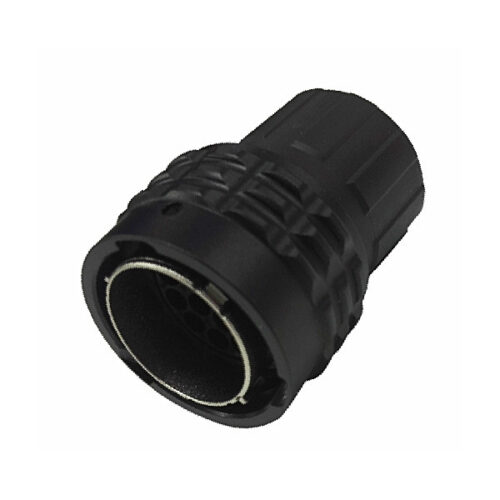
GR Series-19-core 16# circular signal connector
-

Energy storage connector 5.7mm
-
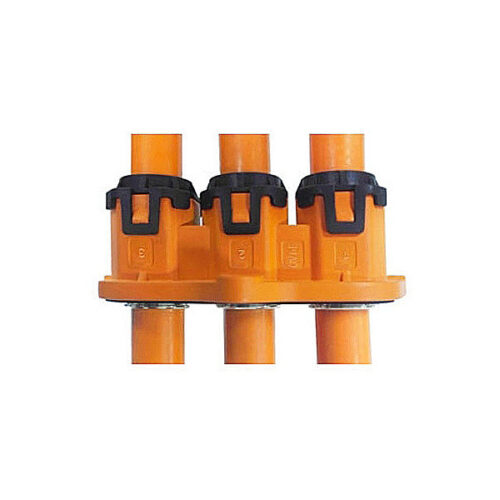
Automotive 3-Core Plastic Via Connector, 3-Pin Automotive DC Connectors, Automotive Plugs Cnd Connectors
-
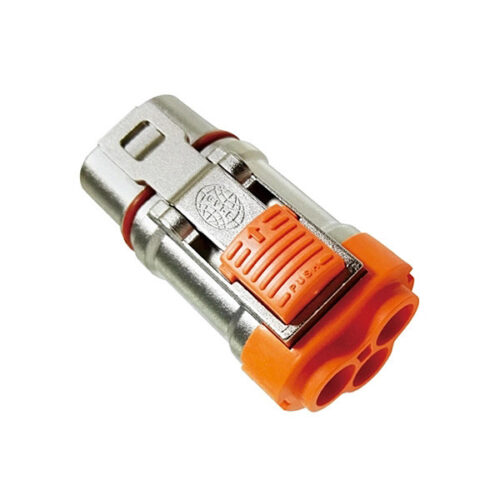
Metal connector-3.6mm-3 core
-
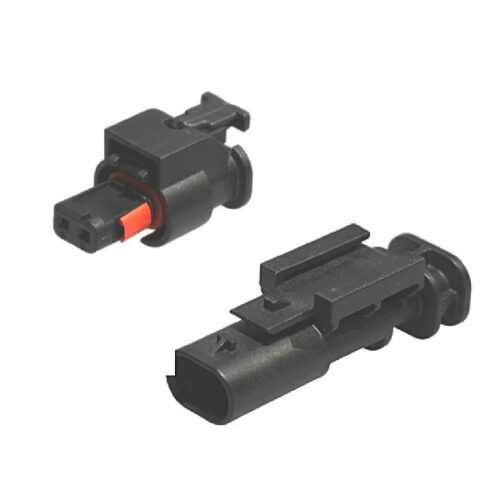
GE Series-2-core cylinder connector
-
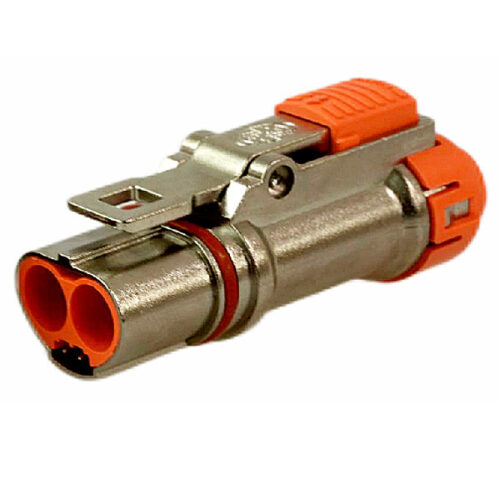
GM Series-3.6mm-2-core Metal Connector
-
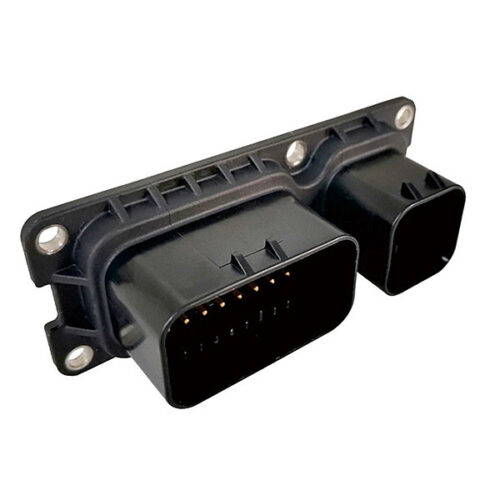
Combination connector-31 core (8+23) socket
-
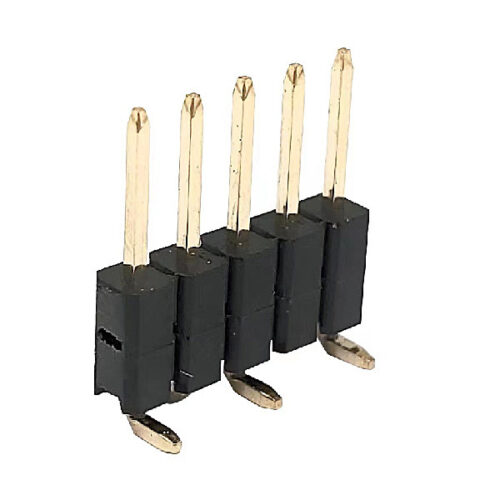
Industrial control pin header
